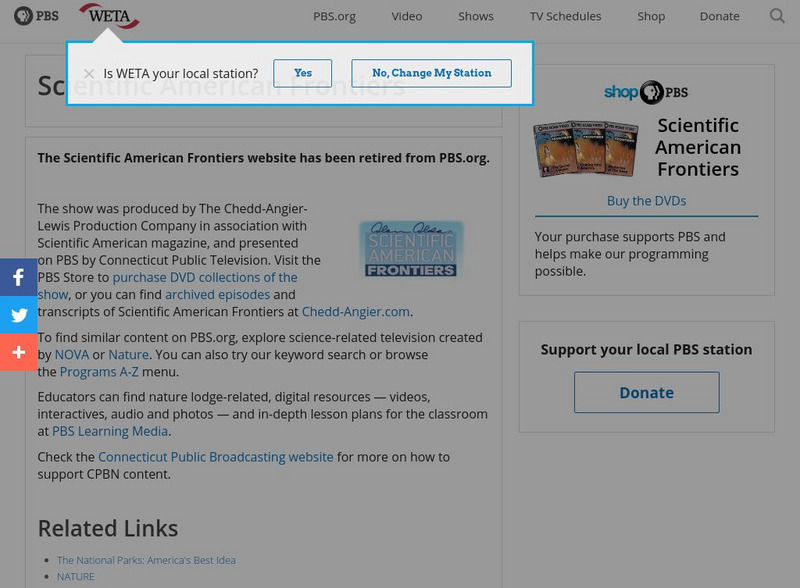Smithsonian Institution
Smithsonian Learning Lab: A Mouse Like a House? A Pocket Elephant?
Teachers can download this teaching package that discusses the limits on animal size, both big and small, and what effect size has on animals. Young scholars will enjoy the hands-on activities described in the lessons. Teachers will...
PBS
Pbs Teachers: Scientific American: Pet Tech: Animal Training
Research color awareness in animals. Design a set of experiments to determine if animals see colors by using a computer-based paint program to create specific color characteristics, based on their "gray values".
eSkeletons
E Skeletons: Boneviewer: Mouse Lemur
Identify the parts of the skull belonging to a Mouse Lemur.
American Museum of Natural History
American Museum of Natural History: Invertebrate O Logy Card
Flip this interactive OLogy card to find questions and answers, fast facts, and other bite-size pieces of information to help you understand important characteristics of invertebrates.
American Museum of Natural History
American Museum of Natural History: Vertebrate O Logy Card
Flip this interactive OLogy card to find a definition, fast facts, questions and answers, and other bite-size pieces of information about the characteristics of vertebrates.
A-Z Animals
A Z Animals: Reference: Anatomy
This entry identifies the defining characteristics animal anatomy.
Biology Corner
The Biology Corner: Anatomy Dissections
Comprehensive material relating to animal dissections allowing students to view virtual demonstrations and images of pigs, rats, and frogs.
PBS
Pbs Teachers: Scientific American: The New Zoos: Doctor Fish
Investigate the evolution of the heart and circulatory system in mammals by studying the anatomy of hearts in other animals. Create models of the hearts of fish, amphibians and mammals.
Curated OER
Merriam Webster: Visual Dictionary Online: Horse Morphology
Labeled diagram of the morphology of a horse.








